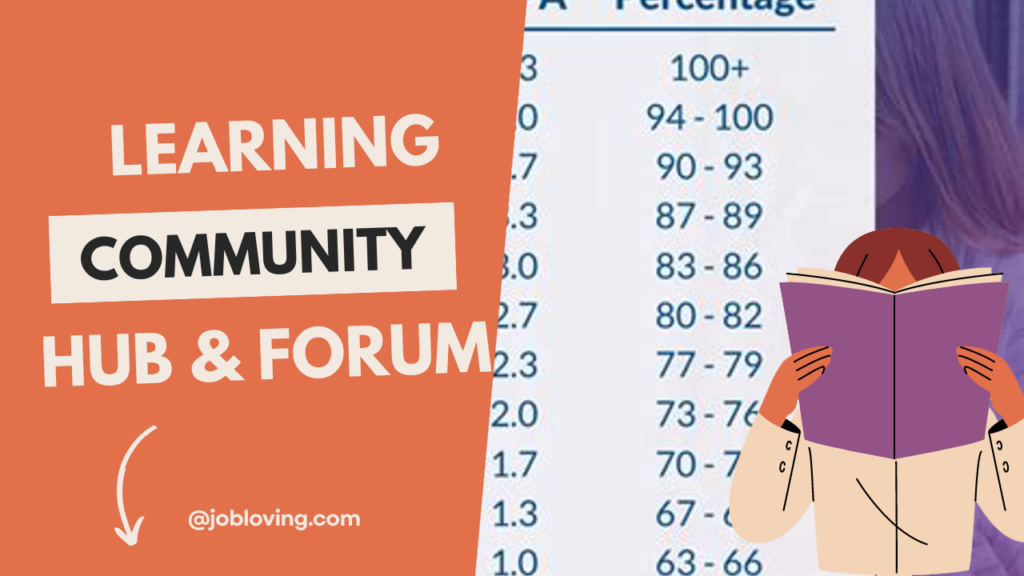Ever wondered if you can break the GPA ceiling? As students strive for academic excellence, the question of whether a GPA can surpass the seemingly impossible 4.0 mark comes to the forefront. Let’s dive into the exciting world of weighted GPAs, where those high-flying AP and honors classes can catapult your academic standing beyond the traditional limits!
The Short Answer: Yes, you can go beyond a 4.0 GPA!
With a weighted GPA, students can indeed exceed the 4.0 threshold by excelling in advanced Placement (AP), honors, or IB (International Baccalaureate) courses. These classes are designed to challenge students more than standard courses, and they typically carry extra weight in GPA calculations. For instance, while an A in a regular class might correspond to a 4.0, an A in an honors class could be valued at 4.5 or even higher, depending on the grading scale used.
Let’s break it down further. Traditional GPAs are calculated on a 4.0 scale where:
- A = 4.0
- B = 3.0
- C = 2.0
- D = 1.0
- F = 0.0
However, with a weighted GPA system, those taking advanced classes receive additional points. This means if you score an A in a rigorous course, you might earn 4.5 points or more rather than a flat 4.0. Let’s put it into perspective:
| Grade | Regular Course | Honors Course | AP Course |
|---|---|---|---|
| A | 4.0 | 4.5 | 5.0 |
| B | 3.0 | 3.5 | 4.0 |
| C | 2.0 | 2.5 | 3.0 |
As you can see, the stakes are high and the benefits even higher! By enrolling and excelling in these tougher classes, students can boost their GPA and enhance their college applications—definitely a winning strategy!
In conclusion, while a 4.0 GPA is impressive, the weighted GPA opens up a whole new realm of possibilities for students looking to shine even brighter in their academic journey. So, if you’re aiming for greatness, don’t hesitate to tackle those advanced classes! If you have any more questions about the GPA system or how to navigate your academic path, don’t be shy! Join the JobLoving community for a treasure trove of resources and support. Let’s get those grades climbing!
Key takeaways about Can you go beyond a 4.0 GPA?
Academic Excellence and Advanced Course Opportunities
- Achieving a 4.0 GPA signifies academic excellence and commitment to high school students’ aspirations.
- Weighted GPAs allow students to exceed 4.0 by taking advanced placement or honors courses.
- A weighted GPA scale can extend from 0.0 to 5.0, depending on course difficulty.
- Advanced courses like AP and IB offer additional GPA points, encouraging students to challenge themselves.
- Students can achieve a 4.0 GPA even with Bs in advanced courses on weighted scales.
- The average high school GPA rose from 3.0 in 2009 to 3.1 in 2019.
- College admissions committees evaluate high school coursework difficulty alongside GPA for comprehensive assessments.
- Many selective colleges require GPAs above 3.5, emphasizing the importance of course rigor.
- Ivy League universities often require GPAs above 3.9 for admission, reflecting their competitive standards.
- Research indicates that challenging courses can lead to higher GPAs and better college opportunities.
Holistic Admissions and Factors Beyond GPA
- GPA reflects a student’s academic journey, but holistic admissions consider various factors beyond grades.
- Letters of recommendation and extracurricular activities also play a vital role in college admissions.
- Balancing academics with extracurriculars is essential for a well-rounded college application profile.
- Active participation in class can enhance learning experiences and foster positive relationships with educators.
- High GPAs are increasingly common, potentially raising the bar for future college admissions standards.
- Ivy League schools typically admit classes with average GPAs slightly below 4.0 for specific reasons.
- Cultivating a diverse skill set and experiences can be more valuable than maintaining a perfect GPA.
- Students focusing solely on perfect grades may miss opportunities for personal and professional growth.
- Perfectly curated academic records may hide a lack of real-world problem-solving skills and experiences.
Challenges and Psychological Aspects of GPA Pursuit
- A 4.0 GPA may indicate a lack of risk-taking or engagement with challenging courses.
- Employers often view a perfect GPA as a sign of compliance rather than leadership potential.
- Students with high GPAs may lack experience in handling failure and overcoming challenges effectively.
- Resilience and the ability to recover from setbacks are crucial attributes for future leaders.
- Elite roles require candidates who demonstrate courage and the ability to take intelligent risks.
- High-performing firms value candidates who stretch their limits and show resilience in adversity.
- Admissions committees prefer candidates who reveal their boundaries through experiences of failure and recovery.
- Demonstrating a balance of high performance and risk-taking is essential for elite admissions and hiring.
- Leaders in advanced economies seek candidates who can navigate uncertainties and embrace challenges effectively.
GPA as a Metric in Potential and Growth
- A perfect GPA is not solely about grades but also about the learning process and growth.
- Maintaining a consistent study schedule helps students avoid cramming and promotes long-term retention.
- Strategic studying methods can significantly improve retention and mastery of course material over time.
- Asking for help before falling behind shows initiative and can lead to academic success.
- Participation in class discussions enhances understanding and demonstrates effort to teachers and peers alike.
- Students need to recognize that their GPA is only one aspect of their overall potential and capability.
- To truly excel, students should focus on both academic achievements and personal development.
- Elite scholars and professionals often emerge from backgrounds that include both successes and failures.
- A GPA above 3.0 is often necessary but not sufficient for elite academic or job placements.

